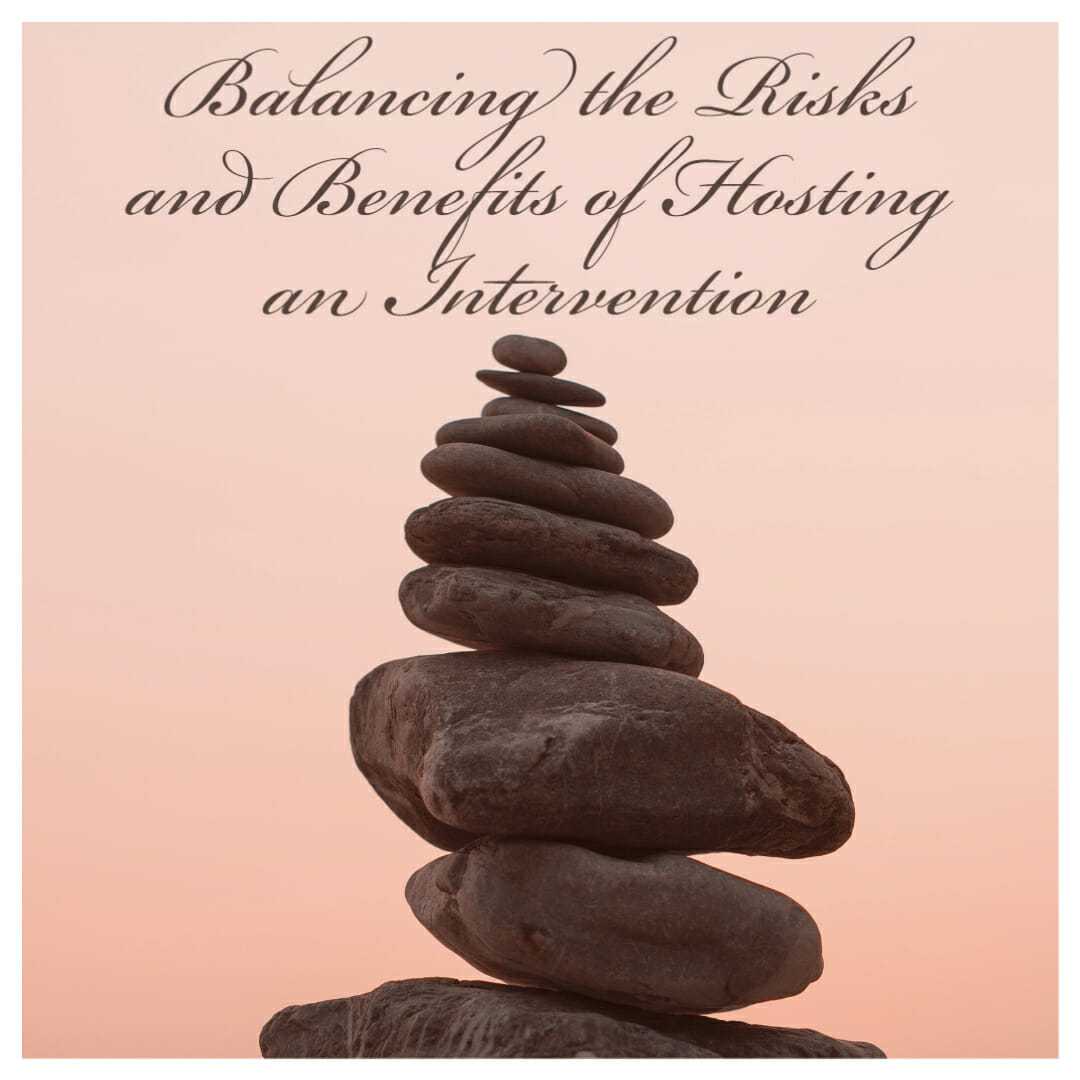Balancing the Risks and Benefits of Hosting an Intervention

Interventions are intended to help someone realize the extent of their usage of drugs or alcohol and encourage them to confront their addiction and get the help they need for their drug or alcohol abuse. While interventions are typically highly practiced and curated, there is no amount of preparation that can eliminate the risks of holding an intervention entirely. While the intention behind an intervention may be genuine, there are many factors to consider. There will always be risks involved with interventions, but they can also lead to great success. For families considering using an intervention technique, it is essential to know the potential dangers and possible success that can come as a result, and the critical role that a professional interventionist plays in the process.
On the Receiving End of an Intervention
Being on the receiving end of intervention can feel incredibly confusing. Depending on how the intervention is being held, someone can feel like they are being attacked for their life choices, and will take an incredibly defensive stance when being addressed, or may be willing to say anything just to get the conversation to end. Suppose an intervention is held and someone doesn’t feel like they have a fair voice. In that case, it can also further a divide between someone and their families and loved ones or even set the families in a negative light, despite the genuine intentions. Interventions are very fragile operations. The highly emotional nature can either lead someone to internalize the extent of their use of drugs or alcohol or induce additional emotional turmoil for someone suffering from addiction if the intervention is not held correctly. The effects of an intervention, either positive or negative, will stick with someone, so extensive preparations must be made for an intervention, and the help of a professionally trained interventionist is used to help someone who is suffering from addition see the positive and genuine support behind the action.
Finding Success in an Intervention
An intervention can also be a significant pivot point for someone not just to realize how much their use of drugs or alcohol has affected their lives and their loved ones, but also motivate someone to want to recover for themselves. This kind of open speaking, when moderated correctly, can be some of the most genuine words that will help someone form their entire image of recovery. For someone in recovery due to an intervention, the stories that their families and loved ones told them will constantly be in their minds, informing and reaffirming their decision to take the difficult journey through recovery. The intimate moments shared during an intervention can be the starting point of one’s recovery journey and can become the basis that they use to measure their success and progress towards their own goals in sobriety.
When interventions are successful, the family can not just empower a loved one to seek the treatment they need for an addition. Still, they can also empower themselves by realizing that they can make a difference for someone in recovery. Helping a loved one who is suffering from addiction can seem like a daunting task, or if a loved one isn’t responsive to help. Successfully moderating an intervention can help the families realize that they can be a source of success for someone as well.
Importance of Having a Trained Professional
Interventions can be a last resort for families to get a loved one to realize the extent of their addiction and the various ways that it impacts those around them. While there can be great successes, interventions can also cause a fissure between families if someone doesn’t agree to get help for their addiction. Therefore, if interventions are used, it is paramount that a trained, professional interventionist is working with the family to ensure that emotions stay under control, conversations stay on task, and to ensure that each person is given a voice. Interventions without using professionally trained interventionists can become very difficult and divisive. For a family choosing to employ an intervention strategy, it is essential to consider all of the ways the situation may play out. A professional interventionist can help guide families and loved ones through the difficult, fragile process.
Interventions aren’t something to be taken lightly. There are risks to all involved; deciding to utilize an intervention is incredibly important. If a family does decide to host an intervention, having a trained professional to help with the process is absolutely necessary. However, it is important to exhaust all other options first. Recovery is made just a bit easier by having family and loved ones on the same side as someone suffering from an addiction. Families all working in tandem can help create a healthy, open recovery environment that is more conducive to the recovery process’s needs and trials. Families have the power to enable success in recovery just as much as they can enable addiction to develop. Interventions may sometimes be successful, but they do come at a risk to all involved.
There are many different aspects involved when trying to help a family member or loved one get the help they need to overcome an addiction. While each situation is different, it is essential to have a variety of options available so each person can find the path to recovery that works best for them. If you or a loved one are struggling with an addiction to drugs or alcohol, contact Brighton Recovery Center. With an array of different programs, from inpatient to outpatient treatments, there is always a place for each person to take their next important step. Each program can be personalized to fit the needs of each person in recovery and you will work alongside trained professionals to help you set and achieve your own goals in a way that is most important to you. On an inclusive, six building campus with sober living residences, medical offices, and a community center that is available free of charge to all those attending the facility, Brighton prides itself on its community and varied approach to each unique person. For more information on how Brighton Recovery Center can help you, contact us today at (844) 479-7035.



